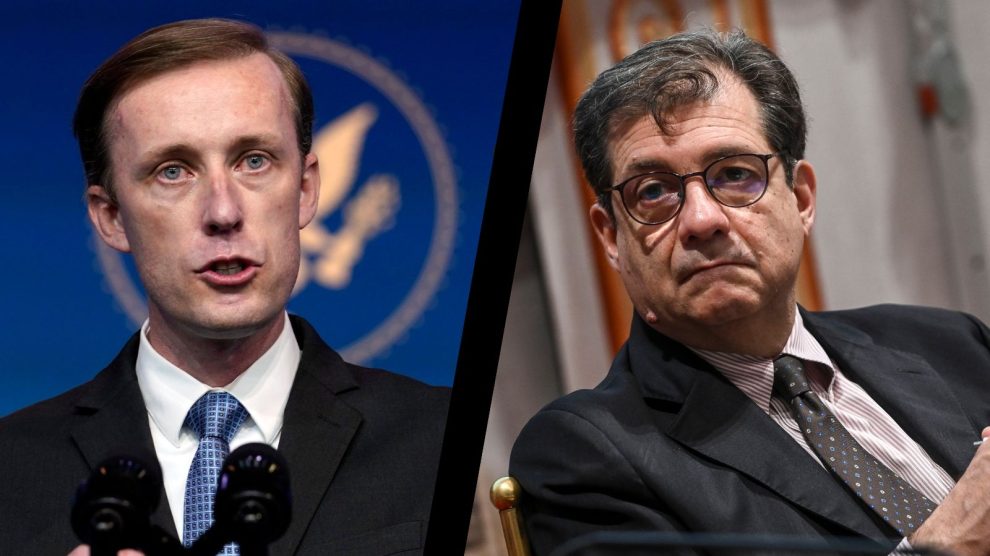Rome and Washington talk. On Thursday, the White House’s National Security Advisor Jake Sullivan met with Francesco Talò, diplomatic advisor to Italian Prime Minister Giorgia Meloni. The two “reaffirmed the unwavering support of both countries for Ukraine in the face of Russia’s aggression,” and consulted on the current situation in Niger, remarking on “the need to restore constitutional order in the country as soon as possible” according to an official communiqué.
- The two also “discussed efforts to deepen cooperation on a range of shared challenges, including expanded support for developing countries in Africa and around the globe,” and “looked forward to Italy’s upcoming G7 presidency in 2024,” with Mr Sullivan “also welcomed Italy’s increasing engagement across the Indo-Pacific region.”
Italy is back – and so is the Quint. The meeting followed parallel ones, with homologues from France, Germany and the United Kingdom also meeting with the White House official. Taken together, those events show that the Quint format (featuring the four major European powers and the US) has become central – and the natural forum to coordinate on issues like Ukraine’s resistance and reconstruction, including how to ensure Russia pays for the damages it caused, and the Niger situation, embodied in the countries’ support of the ECOWAS bloc.
- The five capitals also touched base on the upcoming G20 Summit in New Delhi, India, highlighting their commitment to ensure concrete results – such as the evolution of multilateral development banks to make them more responsive to shared global challenges.
Credit where it’s due. Arguably, PM Meloni and her Atlanticist-anchored foreign policy are no small reason behind the boost to Italy’s international relevance. Rome and Washington share excellent ties, geopolitical direction and targeted initiatives on the most relevant dossiers. All this came clearly to the fore when PM Meloni met with President Biden in late July.
- Washington’s demonstration of the Quint’s relevance proves it’s a foundational basis for political action. And the Italian presence not only confirms the esteem in which the Meloni government is held in the US – further demonstrated by the upcoming arrival of Ambassador Jack Markell, a very close ally of President Biden, to Rome – but enhances the framework of Rome’s foreign policy.
Look East. That’s especially clear looking at the communique’s reference to Italy’s engagement in the Indo-Pacific area. On the same day, PM Meloni posted her congratulations on India’s successful Moon landing, expressing her belief that New Delhi’s “efforts to advance towards new frontiers in human knowledge will foster bilateral collaboration with Italian institutions” and her delight for her upcoming meeting with PM Narendra Modi at the G20 Summit.
- In the wake of the BRICS summits, this might be read as a push to bring these countries away from the anti-Western sirens wilfully echoed by Beijing and Moscow.
- In India’s case, PMs Meloni and Modi upgrading their countries’ relationship status to “strategic” in March testifies to the growing depth of their ties – as well as Rome’s Easterly projection.
- That’s an example of the Italian PM’s efforts to position her government in the groove of a staunchly Atlanticist line (in contrast to the pro-Chinese veers of the recent Italian past) and introduce innovative elements with respect to “classic” conservative Atlanticism.




